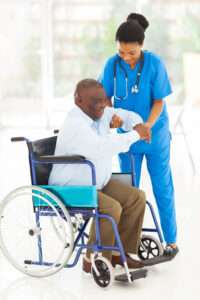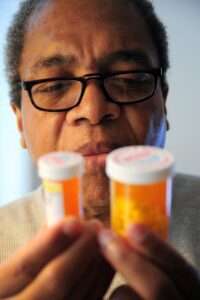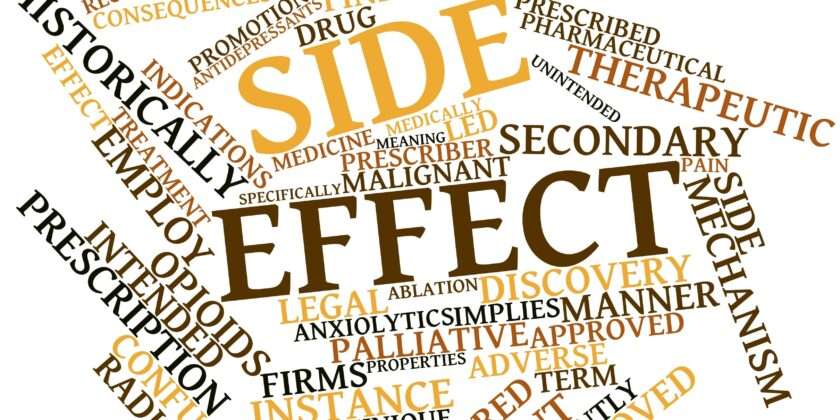Jay Harold constantly listens to people who complain about the U.S. healthcare system. I understand why Black Americans feel they are treated poorly by doctors, pharmacists, and other healthcare professionals. Ten years ago, Jay Harold would have agreed with you. Not now based on the improvements seen in the healthcare system over the last 5 to 10 years. Jay Harold’s post, “Drug Side Effects: Dangerous Meds & Ways to Reduce Your Risk,” is an attempt to give you more tools about drug medications and the healthcare system.
Centers for Medicare & Medicaid Services(1) (CMS) is an Important Agency You Should Know
The Centers for Medicare & Medicaid Services, CMS, is part of the Department of Health and Human Services (HHS). They administer the Medicare, Medicaid, the Children’s Health Insurance Program (CHIP), and the Health Insurance Marketplace. CMS has a major influence on the overall U.S. healthcare system.
The CMS conducts unannounced surveys to ensure that Medicare and/or Medicaid providers follow the rules and regulations for patient safety and improved outcomes. Private insurers
 often use CMS survey results in their ratings of healthcare providers.
often use CMS survey results in their ratings of healthcare providers.
More Black Americans are needed in Clinical Trials
Many Black Americans feel drug companies don’t include them in clinical trials or make medications that are harmful to them. The FDA is aware that some U.S. patients also may not trust medical research due to historical mistreatment of study subjects, such as those involved in the Tuskegee Study, which began in 1932 and continued for 40 years.
The FDA encourages more diversity in clinical trials in order to get a full picture of the risk or benefit of a medical product. Patients enrolled in a trial should be representative of the types of patients who are likely to use the medical product if it is approved or cleared by the FDA.
Unwanted or Unexpected Drug Reactions
When a drug has harmed someone, they have had an adverse drug event(2) (Drug Side Effect). An adverse drug event is any undesirable experience associated with the use of a medical product in a patient. Drug side effects are an important health issue in the United States. Drug side effects cause over 700,000 emergency department visits(3) each year. Nearly 120,000 patients each year(4) need to be hospitalized for further treatment after emergency room visits for adverse drug events.
Drugs approved by the U.S. Food and Drug Administration (FDA) for sale in the United States must be safe — which means that the benefits of the drug appear to be greater than the known
risks –and effective. However, both prescription and over-the-counter (OTC) drugs have side effects. Side effects, also known as adverse events, are unwanted or unexpected events or reactions to a drug. Side effects can vary from minor problems like a runny nose to life-threatening events, such as an increased risk of a heart attack.
Several things can affect who does and does not have a side effect when taking a drug – age, gender, allergies, how the body absorbs the drug, other drugs, vitamins and dietary supplements that you may be taking. Common side effects include upset stomach, dry mouth, and drowsiness. A side effect is considered serious if the result is: death; life-threatening; hospitalization; disability or permanent damage; or exposure prior to conception or during pregnancy caused a birth defect.
Side effects can happen when you:
- start taking a new drug, dietary supplement, or vitamin/mineral
- stop taking a drug that you’ve been on for a while, or
- when you increase or decrease the amount of a drug that you take.
Reducing Your Risk
There are several ways to learn about side effects for your drugs and to reduce your risk of experiencing a side effect.
- Ask your health care professional about any possible side effects and what, if any steps should be taken to reduce the risk when you are prescribed a drug. For example, he
 or she may recommend taking the drug with food to lower the chance of getting nausea.
or she may recommend taking the drug with food to lower the chance of getting nausea. - Ask your pharmacist for the patient prescribing information when you receive your prescription. This document will include possible common and serious side effects.
- Read the pharmacy label and any stickers that may be attached to the prescription bottle. The label and stickers have information on how to take the drug and possible side effects.
Read the Drug Facts Label for over-the-counter drugs. Prescription drug information on side effects is available through FDA’s web-based Index to Drug-Specific Information and Drugs@FDA database. Additional information can also be found at Medline Plus(5), a service of the U.S. National Library of Medicine(6).
When a Side Effect Occurs
Should you experience a side effect, you may be able to lessen or eliminate the effects. Work with your healthcare professional to see if adjusting the dosage or switching to a different medication will ease or eliminate the side effect. Sometimes simply switching from two separate medications to a combination product, if available, will make a difference. Other options, such as a lifestyle or dietary change, may be suggested by your healthcare professional.
Reporting Side Effects
When side effects do occur, you are encouraged to report them to FDA’s MedWatch, a program for reporting serious problems with human medical products including drugs.
MedWatch has a consumer reporting form, FDA 3500B. Written in plain language and designed to be consumer-friendly, the form starts off with a page of some commonly asked questions and answers to help guide the user in submitting the form and then asks simple questions about the problem. In addition to formal reports, MedWatch has a toll free line (1-800-332-1088) to answer questions.
Be an active member of your healthcare team. By taking time to learn about the possible side effects of a drug and working with your healthcare provider and pharmacist, you will be better prepared to reduce your chance of experiencing a side effect or coping with any side effect that you may experience.
Did you know? A drug is a substance intended for use in the diagnosis, cure, mitigation, treatment, or prevention of disease.
A Few Drugs Cause over 40% of Emergency Visits
Some medicines need blood testing to help make sure the dose is just right for you. Over 40% of emergency visits that require patients to be hospitalized are caused by just a few of these medicines that require regular monitoring with blood tests(7). These drugs treat life-threatening conditions such as blood clots, diabetes, and seizures. They offer significant benefits to patients, but there are risks.
Common drugs that can require monitoring include:

Drug side effects cause over 700,000 emergency department visits each year.
- Blood thinners (e.g., warfarin(8))
- Diabetes medicines (e.g., insulin(9))
- Seizure medicines (e.g., phenytoin(10), carbamazepine(11))
- Heart medicine (e.g., digoxin(12))
The numbers of Adverse Drug Events (Side Effects) will likely grow due to:
- Development of new medications
- Discovery of new uses for older medications
- Aging American Population
- Increase in the use of medications for disease prevention
- Increased coverage for prescription medications
Medicines are one of mankind’s greatest inventions. They cure, prevent and alleviate pain and suffering for millions of people every day. Medicines play a significant role in a Wellness program, which includes physical, mental and nutritional aspects. Drug medications have improved the quality of life and increased life expectancy. But you must educate yourself about their benefits and risks.
Enjoyed this post? Share it and read more here. Jay Harold has put together a Resource page that you may find useful when trying to improve your health and wealth. Please take this advice from Muhammad Ali and give back to others. “Service to others is the rent you pay for your room here on earth.”
Bibliography
- https://www.cms.gov/index.html
- http://www.fda.gov/Safety/MedWatch/HowToReport/ucm053087.htm
- http://www.cdc.gov/MedicationSafety/Adult_AdverseDrugEvents.html
- http://www.cdc.gov/medicationsafety/basics.html
- https://www.nlm.nih.gov/medlineplus/
- https://www.nlm.nih.gov/
- http://www.cdc.gov/MedicationSafety/Adult_AdverseDrugEvents.html
- https://www.nlm.nih.gov/medlineplus/druginfo/meds/a682277.html
- https://www.nlm.nih.gov/medlineplus/druginfo/meds/a682611.html
- https://www.nlm.nih.gov/medlineplus/druginfo/meds/a682022.html
- https://www.nlm.nih.gov/medlineplus/druginfo/meds/a682237.html
- https://www.nlm.nih.gov/medlineplus/druginfo/meds/a682301.html





